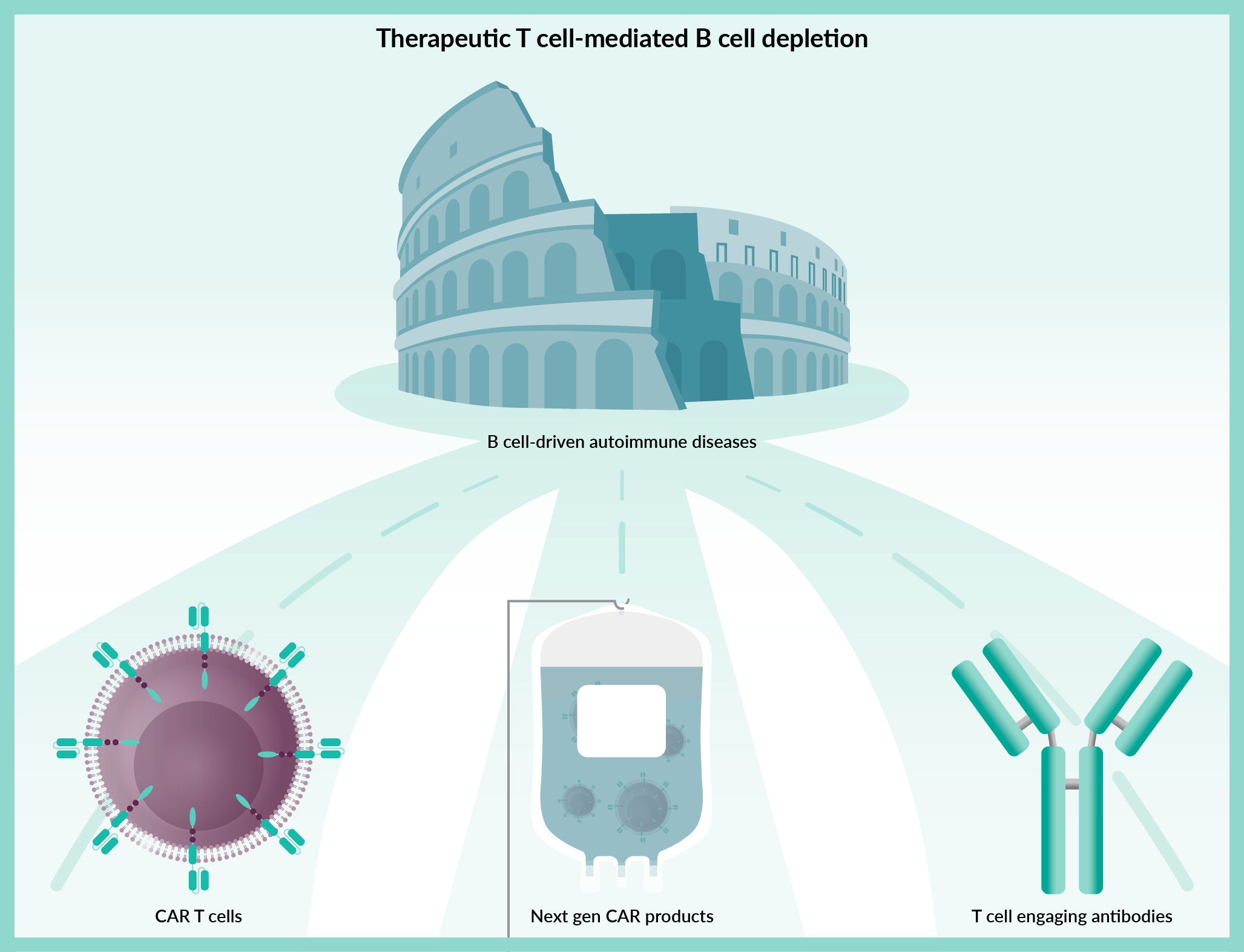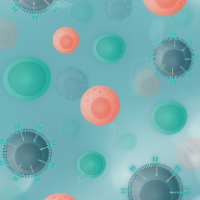CAR-T cells in B-cell mediated autoimmune diseases: do all roads lead to Rome?
Cell & Gene Therapy Insights 2025; 11(1), 141–148
DOI: 10.18609/cgti.2025.018
The use of CAR-T cell therapies in autoimmune diseases represents a groundbreaking shift in treatment paradigms. Building on successes in hematologic oncology, CAR-T cells targeting CD19 have shown profound efficacy in achieving durable remissions, as exemplified by the first patient treated for severe systemic lupus erythematosus. These therapies offer advantages such as active migration of a ‘living’ drug, deep tissue penetration, and potential immunologic reset over traditional B-cell depleting strategies. Complementary approaches, including bispecific antibodies and emerging cell-based modalities such as allogeneic CAR-T cells or CAR NK cells, are expanding the therapeutic armamentarium. While promising, challenges remain with respect to scalability, accessibility, and long-term outcomes. Ongoing research heralds a paradigm shift in personalized, durable autoimmune therapies.
 |
| Road(s) to Rome: T cell-mediated B-cell depletion as a promising therapeutic approach for B-cell-driven autoimmune diseases. Currently, different strategies are being explored for clinical implementation: the use of established CAR-T cells, well known from real-world experience in hematology and oncology; novel CAR technologies originally developed for hematologic malignancies, now being directly evaluated in autoimmune diseases; and T cell engagers, which enable targeted immune modulation without the need for cell transfer. All these approaches share the common goal of effectively addressing the challenges in the treatment of autoimmune diseases. |
